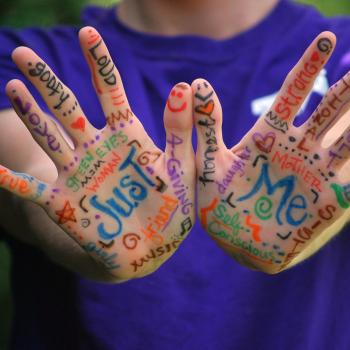
Fan Mail Aside, Will A.I. Soon Write Our Wedding Vows?
The 2024 Summer Olympics came with some interesting side stories, including great controversy surrounding a particular advertisement. “Dear Sydney,” a Google spot featuring a girl dad of an aspiring track and field student with plans to one day break the world records of Olympian Sydney McLaughlin-Levrone, was met with backlash for positing a place for artificial intelligence in writing an innocent message from the heart. The internet court of public opinion expressed disdain at the thought of AI sharing expressions of human emotion, as well as the very deception of the act of misrepresenting oneself as human. Comments for the ad were disabled for the ad replay on Google’s YouTube channel, and just a few days after release, the ad was pulled from circulation during the Olympics broadcast.
While I am encouraged to see this response from the court of public opinion, the otherwise unrestrained sprint toward the remake of life as we know it through the promise of AI remains in full force. While backlash to this particular advertisement may have temporarily assured the ongoing place for the most sacred connections that give meaning to our humanity, I fear AI’s relentless drive toward saturation in the name of promise will eventually wear the resistance thin.
Relational Treasure

This is a fundamentally different issue from those of the past that have drawn conspiratorial-type protests. While technology in general carries with it an inherent risk of providing new comforts capable of eroding human work ethic, critical thinking, and synergy with our natural environment, words like those of John Steinbeck have long issued prophetic-esque warnings: “We now face the danger, which in the past has been the most destructive to the humans: success, plenty, comfort, and ever-increasing leisure. No dynamic people have ever survived these dangers.” The distinction lies in the reality that technological advances of the past largely completed aspects of our work rather than replacing the emotion of it, found in our creativity and critical thinking, among other things. To be fully alive as a human is to grow, to make mistakes, to learn humility and contentment, to explore and dream, and to question and discover. More importantly, it’s to connect interpersonally, which requires vulnerability, time, and intentionality to notice and process our emotions and feelings. While some have an easier time connecting and expressing their emotions, the very attempt to relate our otherwise private sentiments is the very substance of relational treasure. As many have surmised before, something connects when it’s “from the heart.”
Words Courtesy of Silicon

What happens when “from the heart” is replaced with “from silicon”? Can a microprocessor replace human connection? Can the words of a computer ever replace the expressions of the soul? Inherently, our gut reaction is to dismiss the notion as preposterous, yet it would seem, anecdotally, that the answer is a resounding “maybe.” The very fact that the world of tech is exploring this possibility, by virtue of advertising strategies like “Dear Sydney,” is an indicator that at least a faction of society doesn’t deem emotional thoughts and words courtesy of silicon as an embarrassing gaffe.
The Greatest Demonstration of Humanity

The debate will likely continue as to what is right, what is ethical, and what is “human” concerning our dependence on AI, yet one inconvenient fact remains: the essence of humanity is typically summed up in the concept of soul. While philosophers, theologians, and even scientists have debated the notion of the soul for millennia, we can almost universally acknowledge that something sets humanity apart in our ability to remember, connect, and love. Whether it’s the subconscious or some inexplicable notion of a soul, we are emotional beings who respond and react to things that move us. We are stimulated by what moves our senses, and we feel deeply. Without interpersonal relationships, however, there is no context for either joy or grief, acceptance or rejection, affirmation or shame, or love or pain. These characteristics are part of what makes us alive, along with finite lifespans that constantly remind us how precious a day is. Without them, content, from fan mail to love notes, pen pal exchanges to wedding vows, is no more than manufactured widgets versus works of creation. We will undoubtedly see the continued blurring of the lines of what is really human versus what is manufactured humanity, but resistance will always have a cause: the emotion inside of us that drives us to fight for what is right, for love, for justice, and for what is real. Optimistically, these have, throughout the ages, been the greatest demonstration of humanity’s extraordinary strength and ability to survive.

















